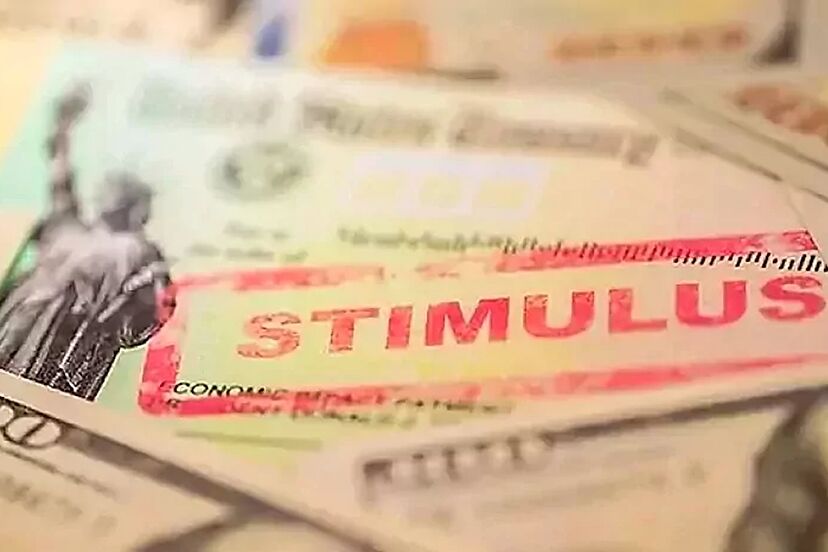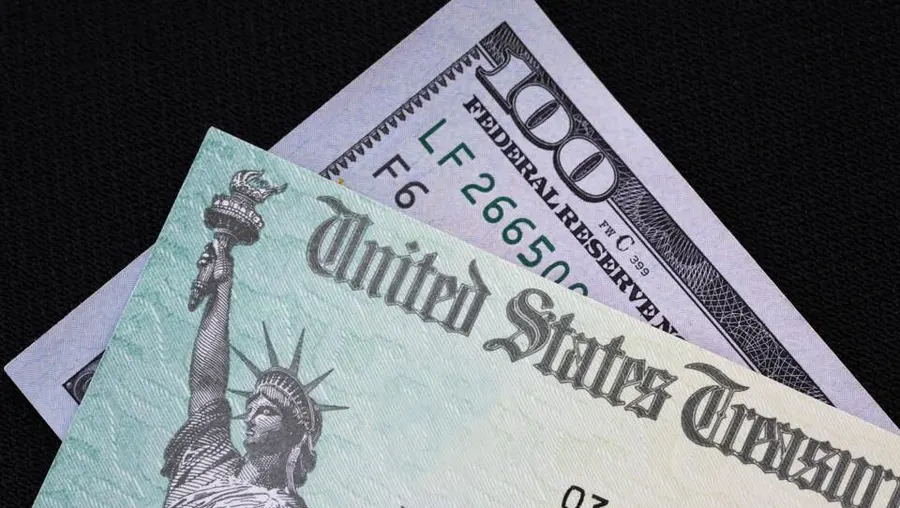Claim $12,000 Stimulus Check 2024
The announcement of a $12,000 stimulus check has generated much interest, and for good reason. If you’re wondering how you can claim this generous financial aid, you’ll find all the information here. Many Americans are curious about their eligibility, the application process, and how these funds can be used effectively.
Eligibility for the $12,000 stimulus check involves various criteria, including income level and citizenship status. This page will guide you through these details, ensuring you have all the information you need to navigate this opportunity.
You can fill out the form below to check your Stimulus Check eligibility.
Frequently Asked Questions
Some common questions around Stimulus check payments and dates.
What are the eligibility criteria for receiving the $12,000 stimulus check?
Eligibility depends on several factors including income level, filing status, and citizenship or residency status. Generally, eligible individuals include U.S. citizens and resident aliens with a valid social security number. Income caps may apply based on adjusted gross income (AGI).
How can I check the status of my stimulus check?
You can visit the IRS website and use the “Get My Payment” online tool to track the status of your payment. You’ll need to provide personal information like your social security number, date of birth, and mailing address.
Are there specific guidelines for how the $12,000 stimulus check should be used?
There are no specific guidelines or restrictions on how you spend the $12,000 stimulus check. It is intended to provide financial relief, so you may use it for essentials like rent, groceries, or utilities, or other personal needs.
Will the $12,000 stimulus check be taxed or affect my tax returns?
The $12,000 stimulus check is not considered taxable income, so it won’t increase your tax liability. It also won’t affect your tax refunds or owe taxes on it for the year received.
What should I do if I believe I’m eligible but haven’t received my stimulus check?
If you believe you’re eligible but haven’t received your check, contact the IRS. You can use the “Get My Payment” tool to check the payment status or call the IRS helpline for assistance. Ensure all personal details and tax filings are up to date.
How does the $12,000 stimulus amount vary with dependents?
The $12,000 amount can increase if you have eligible dependents. The specific amount per dependent will be outlined by the IRS, similar to previous stimulus payments which offered additional funds for each qualifying dependent. Check IRS guidelines for accurate details on dependent eligibility and amounts.
$12,000 Stimulus Check Explained
Purpose and Impact
The $12,000 stimulus check aims to provide financial relief to eligible individuals. By addressing economic disruptions, it supports those facing financial challenges due to various crises. Eligible recipients may use the funds for essential expenses such as housing, food, and healthcare.
By targeting low-income families and individuals with disabilities, the stimulus aims to reduce financial inequalities. The funds can ease the burden on these groups, promoting stability and well-being. This relief measure also attempts to stimulate economic activity by increasing consumer spending, which can positively affect local businesses and the broader economy.
Legislative Background
Several unverified reports suggest the United States government might issue $12,000 stimulus checks. This proposition would require legislative backing, typically involving discussions and approvals in Congress. Specific eligibility criteria and distribution methods would be detailed by relevant government bodies, such as the IRS.
Past legislative actions, like the CARES Act and American Rescue Plan, provide context for understanding how such stimulus payments might be structured. These previous acts aimed at helping Americans recover from economic downturns caused by the pandemic. A similar legislative framework would be necessary to facilitate the release of a $12,000 stimulus check and ensure its proper implementation and oversight.
Eligibility Criteria

Understanding the eligibility criteria for the $12,000 stimulus check is essential. This section breaks down the main factors that determine who qualifies for the payment, including individual eligibility, income thresholds, and additional benefits for dependents.
Individual Eligibility
To be eligible for the $12,000 stimulus check, you must be a legal U.S. citizen or legal permanent resident. This payment is aimed at providing financial relief to those who have been significantly impacted by economic downturns.
You will need a valid Social Security number. Non-citizens, such as those on a visa or undocumented individuals, generally do not qualify. If you have filed tax returns for the past few years or receive certain federal benefits, you might be automatically eligible.
Income Thresholds
Your eligibility is also determined by your income. For individual taxpayers, there’s a specific threshold to meet. Typically, those earning less than $75,000 annually will qualify for the full amount.
For married couples filing jointly, the threshold doubles to $150,000. Income exceeding these amounts may result in a reduced payment. It’s important to consult your latest tax return to understand how your income affects your eligibility.
Dependents and Additional Benefits
Having dependents can also influence the amount you receive. Each qualifying child could result in additional benefits being added to your payment. The aim is to provide more substantial support to families with children.
Typically, a qualifying child must be under the age of 17 and claimed as a dependent on your tax return. The additional benefits usually come in the form of higher payment amounts, helping families who need extra financial support the most.
Application Process for Stimulus Check 2024
To apply for the $12,000 stimulus check, there are several key steps you need to follow. This includes choosing the right application channel, gathering the necessary documentation, and meeting specific deadlines.

Application Channels
You have multiple options for submitting your application. You can apply online through the official government website or by mail. Online applications offer faster processing times and immediate confirmation of receipt.
If you prefer traditional methods, you can complete a paper form and mail it to the designated address. It’s important to ensure that all required fields are accurately filled out to avoid any delays in processing.
Required Documentation
Proper documentation is crucial to a successful application. You will need to provide a completed Form 1040 or Form 1040-SR, which is your federal tax return form. Additionally, include proof of income and government-issued identification.
For dependents, you may need to submit birth certificates and Social Security numbers. Making sure these documents are up-to-date and correct will help avoid any issues in your application processing.
Deadlines and Processing Times
Be aware of the application deadlines to ensure you receive your check in a timely manner. The deadline for the filing period is usually specified by the government and can vary. Submitting your application early within this period can expedite processing.
Processing times can vary. Online applications typically take a few weeks, while paper applications might take longer. Monitoring your application status can help you stay informed about the progress and expected timeline for receiving your stimulus check.
Payment Methods and Timing Of Stimulus Check 2024
Understanding how and when you’ll receive your $12,000 stimulus check is crucial. There are three main methods: direct deposit, paper check delivery, and card payments.
Direct Deposit
Direct deposit is often the fastest and most secure way to receive your stimulus check. Funds are directly transferred to your bank account, minimizing the risk of any delays. To use direct deposit, you need to ensure the IRS or state government has your up-to-date bank account information. This can usually be done when filing your taxes. Most recipients received previous stimulus checks within days of issuance via this method.
Paper Check Delivery
Some recipients prefer or need to receive their stimulus payment via a paper check. This method is slower than direct deposit due to mailing times. Checks are sent to the address the IRS or state government has on file for you. Ensure your address is current to avoid loss or delayed receipt of your payment. Remember to deposit or cash the check promptly once received.
Card Payments
Certain stimulus payments are issued on prepaid debit cards. These cards are typically mailed to the recipient’s address on file. Upon receiving the card, you must activate it and set up a PIN. Card payments offer flexibility as you can use them for purchases directly or withdraw cash at ATMs. Like paper checks, ensure your mailing address is correct to avoid delays.
By knowing your options and ensuring your personal information is accurate, you can choose the most suitable payment method and avoid potential delays or issues.
Use and Management of Funds
Managing a $12,000 stimulus check effectively involves responsible spending and careful financial planning. Making informed choices can optimize the benefits of these funds.
Responsible Spending
Spending the stimulus check wisely ensures that it meets pressing needs and provides lasting value. Prioritize essential expenses first, such as rent, utilities, and groceries. Paying down high-interest debt is also a smart move, as it reduces future financial strain.
Consider allocating a portion towards health-related expenses, including medical bills and insurance premiums. Additionally, setting aside funds for necessary home or car repairs can prevent larger costs down the line.
Enhancing emergency savings is prudent, offering a financial safety net for unexpected situations.
Financial Planning
Creating a financial plan allows you to make the most of your stimulus check. Start by evaluating your current financial situation and identifying areas requiring immediate attention. You might benefit from consulting a financial advisor for tailored advice.
Build a budget that accounts for all your sources of income and outgoing expenses. This helps ensure the funds are directed towards prioritized goals. Allocate a portion of the stimulus check towards long-term investments such as retirement accounts or education funds.
Consider diversifying investments to balance risk and reward. If you have children, planning for their education expenses can be a significant long-term investment. Carefully documenting your expenditures can help track spending and adjust plans as needed.
Potential Issues and Resolutions
Any new stimulus check program may present several challenges. Notably, individuals might encounter disputes over eligibility, be at risk of fraud, or need to amend and appeal decisions related to their payment.
Dispute Resolution
Disputes can arise if you believe you qualify for the stimulus check but have not received it, or if you received an incorrect amount. Resolving disputes typically involves contacting the IRS or relevant state agencies. You might need to present documentation proving your eligibility, such as income records or proof of disability.
Keep all correspondence and records related to your dispute. For unresolved issues, seeking assistance from legal aid services or an accountant may expedite the process and ensure your entitlements are honored.
Fraud Protection
Fraud is a significant concern with any financial aid program. Scammers may attempt to deceive you into revealing personal information or direct payments to fraudulent accounts. Ensure you verify the source of any communication regarding your stimulus check.
Use official channels like the IRS website for information and updates. Be cautious of unsolicited emails and calls asking for sensitive details. Implement strong passwords and use multi-factor authentication where possible to protect your personal data.
Amendments and Appeals
If there is an error in your stimulus check amount or other details, you might need to file amendments to your tax return or appeal the decision. The IRS allows taxpayers to file an amended tax return for corrections.
Review the guidelines for amending returns or appealing decisions carefully. It’s crucial to adhere to deadlines and include essential documentation to support your case. Consulting with a tax professional can be beneficial to navigate the amendment and appeal process effectively.
Economic Effects
The $12,000 stimulus check has significant implications for consumer spending patterns, job market fluctuations, and long-term economic projections. Each of these areas is crucial for understanding the broader economic impact.
Consumer Spending
A substantial portion of the $12,000 stimulus check is likely to be injected directly into the economy through increased consumer spending. This can lead to a short-term boost in retail sales, benefitting businesses both large and small. Essential goods such as groceries, medical supplies, and housing often see the highest spending first.
Discretionary spending on items like electronics, dining out, and travel may also rise as consumers feel more financially secure. Savings rates may decrease temporarily as people prioritize immediate needs and wants. It’s important to monitor how these new spending habits adjust over time.
Job Market Fluctuations
The infusion of stimulus checks can lead to various changes in the job market. Increased consumer demand typically encourages businesses to hire more employees to keep up with sales, potentially reducing unemployment rates. You may notice a surge in temporary or part-time jobs, particularly in retail, food service, and logistics sectors.
However, there could be complications. Some businesses might struggle to meet demand if supply chain issues persist or if there are regulatory hurdles. Additionally, shifts towards automation or remote work could influence hiring trends, necessitating new skills and training for workers.
Long-Term Economic Projections
Long-term economic effects of the stimulus check include potential impacts on inflation rates and national debt levels. Sustained increases in consumer spending can drive up inflation, which affects purchasing power and the overall cost of living.
Fiscal policies to support the stimulus may lead to higher national debt, affecting future government spending and borrowing costs. Investment in certain sectors, such as technology and renewable energy, could lead to economic growth and innovation. Predicting exact outcomes is complex and depends on various factors, including follow-up policies and global economic conditions.
Reporting and Accountability of Stimulus Check
In managing the $12,000 stimulus checks, the focus is on ensuring all funds are used appropriately and transparently. Key mechanisms involve government oversight bodies and public access to detailed information.
Government Oversight
Government agencies play a pivotal role in overseeing the stimulus distribution. Agencies like the Internal Revenue Service (IRS) and the U.S. Department of the Treasury monitor the allocation and usage of the funds.
They ensure that only eligible recipients receive payments. Moreover, audits are conducted periodically to verify that the funds are not misused or improperly allocated. Strict compliance with established guidelines aims to prevent fraud and ensure accountability.
Public Transparency
Transparency is crucial for maintaining public trust. Detailed records of fund allocation and usage are made publicly available. This includes specific reports on who received payments, eligibility criteria, and total amounts distributed.
Platforms like the IRS’s online account services provide individuals with access to their payment history. Additionally, periodic updates and reports from the Treasury Department are accessible to the public through their official website. This openness helps maintain accountability and allows citizens to stay informed about how funds are managed.


